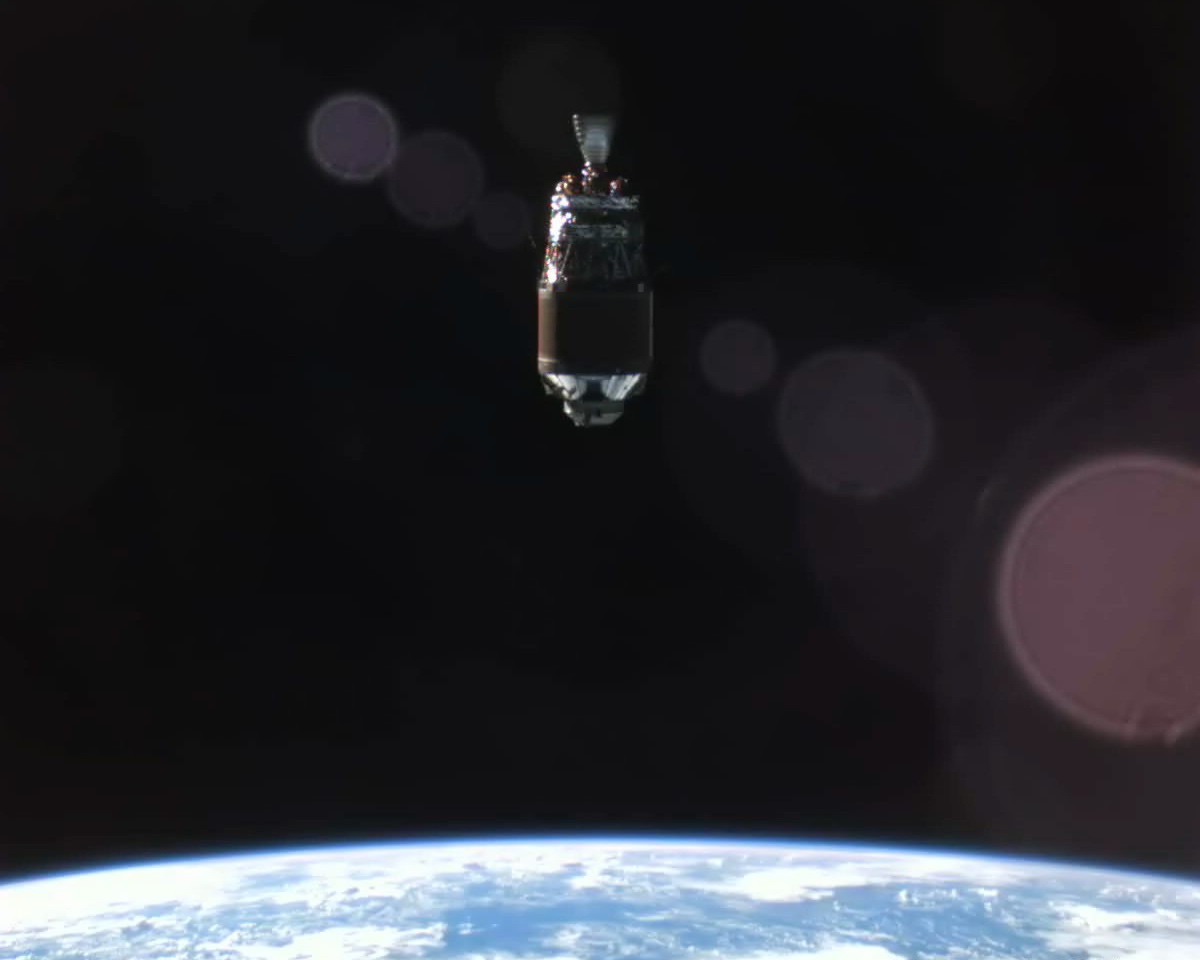TOKYO — An Astroscale spacecraft is continuing to inspect a Japanese upper stage left in low Earth orbit while demonstrating it can do so safely.
Astroscale announced July 9 that its Active Debris Removal by Astroscale-Japan (ADRAS-J) spacecraft conducted a “fly around” maneuver, going part way around the H-2A upper stage it has been inspecting for the last few months. ADRAS-J used sensors to maintain a distance of just 50 meters from the stage.
However, about one third of the way through the maneuver, ADRAS-J encountered what the company called an “unexpected attitude anomaly” that triggered an automatic abort. The spacecraft moved away from the stage as designed to avoid any risk of a collision.
“The abort maneuver implemented during the fly-around operation demonstrated that ADRAS-J can maintain safety even while performing close approach observations of non-cooperative objects,” the company said in a statement, adding that engineers had found the cause of the anomaly and were preparing for another close approach to the stage.
Other than the anomaly, Astroscale says the ADRAS-J mission has been going well. The spacecraft launched in February and reached the vicinity of the H-2A stage in April. It approached to within 50 meters of the stage in May and has been conducting inspections of it since then, leading up to the fly-around maneuver that started June 19.
Nobu Okada, founder and chief executive of Astroscale, showed some of the images of the stage taken by ADRAS-J during a July 8 presentation at the Spacetide conference here. “It was just beautiful,” he said.
The images showed that the stage remained in relatively pristine condition after 15 years in orbit. “These images hold a lot of implications” for future debris removal efforts, he said. Among them is a very low tumbling rate, which he called “almost static.”
Nobu Okada, founder and chief executive of Astroscale, speaks at the Spacetide conference July 8. Credit: SpaceNews/Jeff Foust
In addition to being a technical demonstration of rendezvous and proximity operations (RPO), Okada said ADRAS-J was a policy demonstration, following guidelines for on-orbit servicing released by the Japanese government for safety and transparency. That included getting appropriate permissions, emphasizing safe operations and sharing information about spacecraft operations.
ADRAS-J is the first phase of a program by the Japanese space agency JAXA called Commercial Removal of Debris Demonstration. In April, JAXA selected Astroscale for the second phase of the program, where the company will send a spacecraft to the same upper stage for deorbiting it. Astroscale has not released detailed plans for that mission.
While Astroscale operated ADRAS-J, the company also conducted an initial public offering on the Tokyo Stock Exchange Growth Market, a portion of the exchange for companies with higher growth potential but also higher risk. Astroscale soared in its first day of trading June 5, closing up more than 60%. The company has since given back those gains and closed July 9 at 818 yen ($5.07) per share, below its IPO price of 850 yen.
“This shows the global investor community sees the significance of space sustainability but also the market opportunity for on-orbit servicing,” he said if the IPO.
Okada emphasized the company’s growth, noting its backlog has grown from 1.7 billion yen two years ago to 28.5 billion yen today. “By leveraging RPO technologies, we are finally capturing opportunities,” he said. “We are on the cusp of a booming on-orbit servicing market.”
